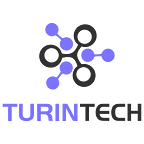Unlock Superior SQL Query Performance with AI: Why Choosing the Right AI Tools Matters — TurinTech AI
SQL queries are critical for business operations in today’s data-driven world. They play a crucial role in managing, analysing, and extracting value from data. However, as databases grow larger and more complex, companies face significant challenges in optimising SQL query performance. This blog will explore the importance of SQL optimisation and how Artemis AI empowers developers to harness GenAI to optimise SQL queries for faster speed and performance.
Understanding SQL Query Performance
SQL query performance is pivotal for the efficiency and responsiveness of database-driven applications. At its core, query performance is influenced by query complexity, database size, indexing strategies, and hardware resources. Efficient SQL queries ensure faster data retrieval and processing, which is crucial for real-time analytics, reporting, and decision-making.
Poorly performing queries can lead to slow response times, increased CPU and memory usage, and overall system sluggishness. This not only affects user experience but also hampers business operations.
Challenges of SQL Query Optimisation
Optimising SQL queries is fraught with challenges. Identifying performance bottlenecks requires specialised tools and expertise, as poorly performing queries can be buried deep within complex database structures. The dynamic nature of data and schema changes adds another layer of complexity, necessitating continuous monitoring and adjustments.
Balancing performance with readability is another challenge. Highly optimised queries can become convoluted, making them difficult to maintain and understand. Resource constraints, such as limited CPU and memory, further complicate optimisation efforts. Additionally, different database management systems (DBMS) have unique optimisation techniques, requiring tailored strategies for each system.
GenAI for SQL Optimisation: Benefits and Risks
With the rise of GenAI, teams using SQL can now leverage large language models (LLMs) for database query optimisation.
GenAI can identify and correct errors in SQL queries, saving significant time and effort that data analysts have to spend on the task. It can also recommend ways to optimise queries, enhance execution speed, and reduce data warehousing costs.
However, adopting LLMs for SQL optimisation comes with risks. AI-generated SQL code may not always be accurate or immediately usable. It often requires further development, testing, and iteration to meet desired standards and function correctly.
Furthermore, LLMs may not fully grasp the specific business logic or context behind a query, potentially leading to sub-optimal recommendations. Security is another concern. Any changes made to optimise performance must be carefully reviewed to ensure they do not introduce new vulnerabilities.
Optimise SQL Queries with Artemis AI: Harness GenAI with Enhanced Control and Trust
Artemis AI, our GenAI Code Optimiser, is designed to harness the power of generative AI for software excellence while mitigating associated risks. Building on a decade of TurinTech AI’s research in code optimisation, Artemis AI offers developers a flexible framework that leverages LLMs, alongside robust scoring and validation to optimise codebases efficiently and effectively.
Key Features of Artemis AI:
- Code Analysis: Identify inefficient SQL queries and rank optimisation opportunities (e.g., redundant joins, suboptimal indexing) in seconds, not hours.
- LLM-based Recommendations: Utilise a mix of LLMs to provide context-aware recommendations for optimising SQL queries.
- Scoring Query Suggestions: Evaluate the quality of LLM-based SQL suggestions based on performance, security, stability, and runtime efficiency.
- Validation Checks: Conduct rigorous validation, including execution tests, unit tests, security assessments, and compliance reviews.
- Performance Optimisation: Optimise SQL queries for enhanced performance in cloud-based data warehousing environments.
- Code Chat: Ask SQL-related questions, seek clarification on suggested optimisations, receive explanations, and more.
Benefits of optimising SQL queries with Artemis AI
With Artemis AI, teams can optimise SQL queries with confidence, driving better performance, efficiency, and security in their data operations.
Enhanced Performance: Artemis AI optimises SQL queries to improve execution speed, ensuring faster data retrieval and processing. This leads to quicker decision-making and a more responsive system, boosting overall productivity.
Cost Efficiency: By streamlining SQL queries, Artemis AI reduces costs associated with data warehousing and cloud storage. Optimised queries require fewer resources, translating to lower operational expenses and allowing businesses to allocate resources more effectively.
Improved Security: Artemis AI’s robust validation processes ensure that performance enhancements do not introduce new vulnerabilities. Every optimisation is reviewed to maintain high-security standards, protect sensitive data, and ensure compliance with industry regulations.
In today’s data-driven world, optimising SQL queries is essential for maintaining efficient and responsive database operations. Artemis AI leverages the power of generative AI to tackle the complexities of SQL optimisation, offering a robust and flexible framework that enhances performance, reduces costs, and ensures security. By integrating Artemis AI into your data operations, teams can achieve faster query execution, improved resource allocation, and a more secure data environment. Embrace the future of SQL optimisation with Artemis AI and unlock the full potential of your data.
Originally published at https://www.turintech.ai on August 8, 2024.
